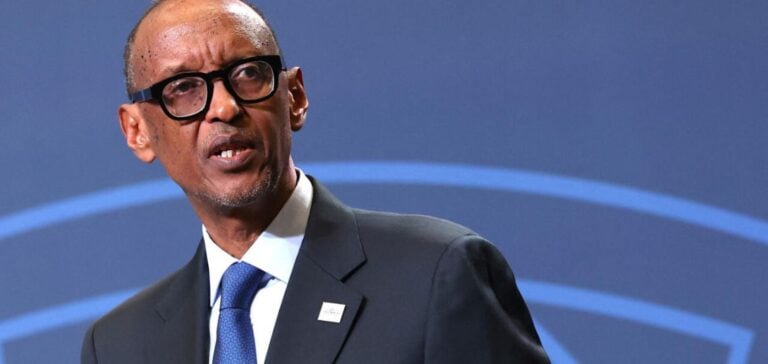Rwanda, a Central African country undergoing energy expansion, is relying on Russia to train its executives in the field of nuclear energy. This initiative aims to support the diversification of its energy sources to meet the growing electricity needs of a population of approximately 13 million. Currently, Rwanda’s energy mix is primarily composed of thermal energy (51%), followed by hydropower (43.9%) and solar (4.2%).
During a Russia-Africa conference in Sochi, Rwanda’s Foreign Affairs Minister, Olivier Nduhungirehe, emphasized the importance of nuclear energy for his country. He noted that hundreds of Rwandan students have been trained at Russian universities, with some already specializing in nuclear sciences. Rwanda hopes that many young graduates will pursue this sector to become future specialized scientific executives.
A strategic partnership for nuclear development
The collaboration between Rwanda and Russia in the nuclear field is not new. In 2019, Rwanda signed an agreement with Rosatom, the Russian Federal Atomic Energy Agency, to build nuclear power plants on Rwandan soil. This partnership aligns with Rwanda’s desire to enhance its energy infrastructure and expand its energy sources beyond conventional resources. This collaboration reflects the close relationship between Moscow and Kigali, which the minister describes as “excellent.”
Despite international pressure aimed at limiting alliances in the nuclear field, Rwanda remains determined to pursue its projects with Russia. According to Minister Nduhungirehe, this pressure comes from foreign powers, often in the name of moral values, but Rwanda intends to maintain a foreign policy based on mutual respect and concrete African interests.
Projects with international partners
Russia is not Rwanda’s only partner for its nuclear projects. In August 2024, a memorandum of understanding was signed with the American company Nano Nuclear Energy for the construction of small modular reactors (SMR), a promising alternative to conventional nuclear power plants. These reactors, more compact and less expensive, could offer a solution more adapted to Rwanda’s energy needs while simplifying construction and maintenance requirements.
Furthermore, in September 2023, Rwandan authorities concluded an agreement with Dual Fluid Energy, a German-Canadian start-up, to develop an experimental nuclear reactor. This innovative project could represent a significant advancement in the civilian application of nuclear energy in Africa.
A limited African context
Today, South Africa is the only country on the African continent to possess a civilian nuclear program, with two operational reactors for over three decades. Rwanda could thus join the small group of African countries committed to civilian nuclear energy, opening up new opportunities for economic and technological growth. However, the challenges are numerous, ranging from nuclear safety requirements to environmental concerns.
Rwandan authorities are relying on these international partnerships to overcome technical and administrative obstacles. In the long term, nuclear energy could play a key role in Rwanda’s energy strategy, helping the country reduce its reliance on fossil fuels and develop more sustainable energy.





















